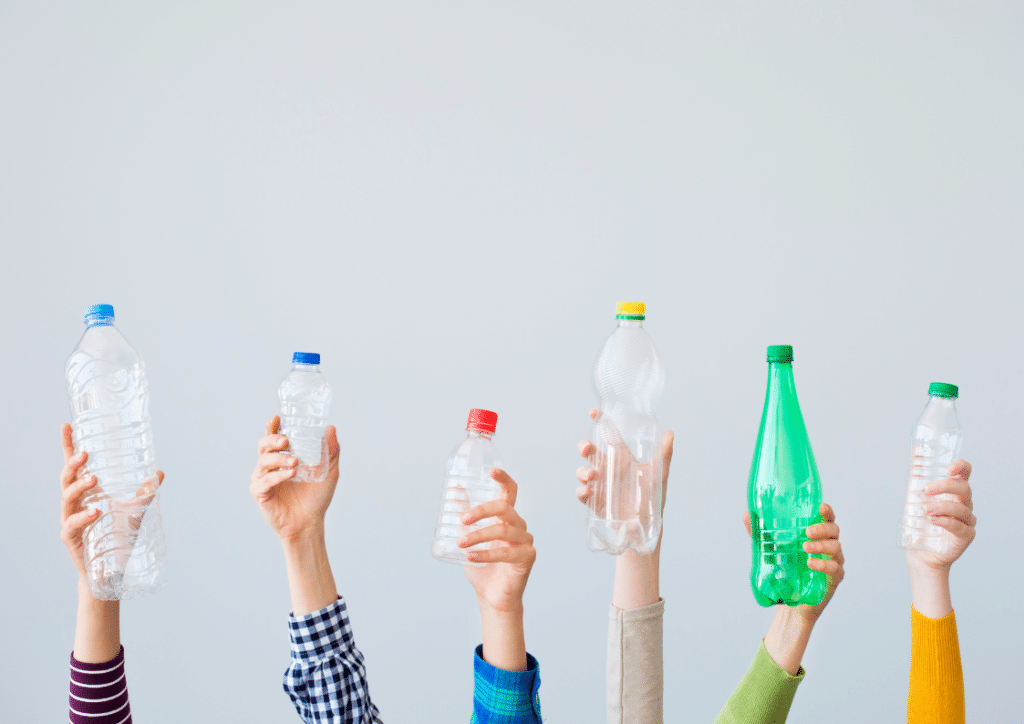The plastic waste effect on the environment has long been recorded and discussed. The world at large produces about 419 million tons of plastic every year, while roughly 11 million tons of plastic become plastic pollution in the sea. On top of that, it’s been found that 91% of all plastic waste is not recycled, further exacerbating the plastic crisis. So how do we in Hong Kong make the change, and reduce packaging and packaging waste?
—
ReThink Hong Kong, a one-of-a-kind two-day business conference centered around sustainable economy, society, and environment, will be hosting its second edition on October 5-6 at the HKCEC. Speakers and panelists will be sharing their valuable insights, solutions, and strategies in sustainability including how we tackle and solve plastic waste in the environment.
Earth.Org spoke with Paul Zimmerman, Chair of the non-profit Drink Without Waste ahead of his panel at ReThink, about the practical actions and mechanisms we can use to reduce packaging and packaging waste in Hong Kong.
EO: What does the non-profit Drink Without Waste aim to achieve?
Zimmerman: Our group is about coming up with policy and advocacy for changes. When we started, it took the group about a year to agree on the strategies: to reduce, to redesign the drinks packaging, to recover and get the materials back from the market, and to recycle. But the overall objective is to reduce the beverage packaging going to waste by 70% to 90%. We’re confident we will reach that in 2030, so we set ourselves a more aggressive aspiration to reach it by 2025. I would say the end of our project is when the government has set and enacted legislation around the producer responsibility scheme for beverage packaging. That would be the endgame.
EO: What strategies are you utilising to reduce 90% beverage packaging waste in Hong Kong?
Zimmerman: Over the next couple of years, our objective is to kickstart and promote our voluntary recovery of the packing materials, to make current beverage packaging that’s in the market more recyclable, to encourage drinking without package materials by getting more dispensers in stores – whether it’s water for free or it’s paid – and to encourage the industry to set up better facilities in the territories for recycling.
EO: What initiatives have been successful since launching in 2017?
Zimmerman: Our Neighbourhood Scheme. Originally we were thinking we’d provide cash for informal sectors returning the plastic bottles to recycling locations. What has transpired is that we’re paying that money to the cleaners. 80-90% of the materials we get back from the market are kept separate by people who clean buildings and streets. Because of our financial reward system, they started to keep plastics, particularly plastic bottles, separate.
You might also like: 15 Ways to Reduce Your Plastic Waste

EO: What have you learned from the neighbourhood scheme and to replicate in other initiatives?
Zimmerman: For us, it means we’ve been able to understand better what works and what doesn’t work in the market. We found out that recycling shops don’t work as well because they don’t have a lot of space. Our “pop-ups”, however, have worked really well. We have these recycling locations that have popped up, whether it’s a truck parked on the side of the road for a few hours at certain times, or whether it’s someone operating behind a refuse collection point at a housing estate. It’s entirely informal, it hasn’t been recognised much by the government as a real methodology but we hope to expand with new schemes and promote it in Hong Kong. We believe it’s very efficient and very low cost to get a lot of good materials well separated out of the market.
EO: What have been the biggest challenges in engaging with stakeholders?
Zimmerman: Everybody has interests and ways of working – not all of them can be easy at times. You have retailers and beverage manufacturers, they both share the profits of the drink but who’s going to take the cost? Especially with new costs that are introduced in keeping it separate and recycling. Those are challenges but the great thing is everybody is really positive. Watsons Water have since announced they were putting RVMs in their shops and Vitasoy is doing initiatives to get their liquid cartons back. It’s very encouraging to see everybody trying. At ReThink, we can expand the group of people that are involved and to amplify the messages and types of challenges so that people in the market understand.
This article is written as part of an editorial partnership with ReThink Hong Kong.

















